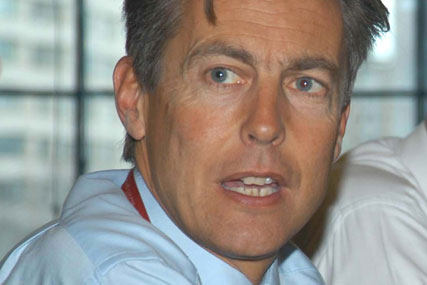
Talking at the biennial Royal Television Society convention in Cambridge, Bradshaw said the chairman of News Corporation in Europe and Asia "did us all a favour" by asking legitimate questions in his controversial MacTaggart lecture last month.
In his first major speech since taking office from Andy Burnham this summer, former BBC journalist Bradshaw said the time had come for the corporation to be "looking more carefully" at what it pays star presenters, which include Jonathan Ross, Jeremy Clarkson and Anne Robinson.
Labour’s Culture Secretary also suggested the publicly-funded BBC should not continue to pursue new multimedia interests which directly place it in competition with commercial operators.
He noted the corporation had expanding from being a service of two TV channels, four national radio stations, a local radio network, a teletext service and some videotape sales, to owning eight linear TV channels, several interactive and high definition channels, nine national radio stations, a dominant local radio network and the iPlayer, as well as its burgeoning consumer magazine and DVD businesses.
"If it were to continue on anything like that trajectory, the rest of the industry would be right to be worried and the mixed economy would be seriously imbalanced," he said.
Bradshaw also admitted to being "concerned" by the role of the BBC Trust, the body responsible for regulating the BBC led by chairman, Sir Michael Lyons.
He said: "I don’t think it is a sustainable model in the long term. I know no other area of public life where, as is the case with Trust, the same body is both regulator and cheerleader."
He dismissed comments made by Lyons in an open letter last week that around half of the public would prefer the licence fee to be lowered by £5.50 rather than sharing it with rivals as "not a serious or sensible way" to have a debate.
The minister’s attack follows strong BBC condemnation of government plans to use part of the licence fee to fund a replacement for ITV’s local news service, as outlined in Lord Carter’s Digital Britain report in June.



.jpg)


.jpg)